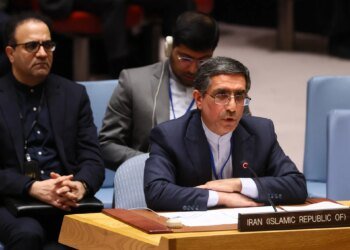By Ghulam Haider
The World Health Organization (WHO) has recommended Uzbekistan against the usage of two cough syrups made by Noida-based company Marion Biotech for children as they do not meet the required quality standards.
The “substandard medical products manufactured by Marion Biotech fail to meet quality standards or specifications and are therefore out of specification,” the WHO has declared in its medical product alert. The alert said the two cough syrups contained diethylene glycol (DEG) and ethylene glycol (EG) in unacceptable levels.
This development comes on the heels of another such incident in the Gambia in which four paediatric syrups were found to contain DEG and ethylene glycol, according to another product alert of the WHO.
“This WHO Medical Product Alert refers to two substandard (contaminated) products, identified in Uzbekistan and reported to WHO on December 22, 2022. Substandard medical products are products that fail to meet quality standards or specifications and are therefore out of specification,” the WHO said in an alert released on its website.
“The two products are AMBRONOL syrup and DOK-1 Max syrup. The stated manufacturer of both products is MARION BIOTECH PVT. LTD, (Uttar Pradesh, India). To date, the stated manufacturer has not provided guarantees to WHO on the safety and quality of these products,” the alert added.
Marion Biotech pharma based in Noida, India, has come under scrutiny as reports emerged about the death of 18 children after consuming cough syrup came in from Uzbekistan.
According to WHO, laboratory analysis of samples of cough syrups, undertaken by national quality control laboratories of the Ministry of Health of the Republic of Uzbekistan found both products contained unacceptable amounts of diethylene glycol and /or ethylene glycol as contaminants.
“Both of these products may have marketing authorizations in other countries in the region. They may also have been distributed, through informal markets, to other countries or regions,” the WHO alert added.
“The substandard products referenced in this Alert are unsafe and their use, especially in children, may result in serious injury or death,” WHO Product Alert added.
The UN body health alert said the samples in question were tested by the ‘national quality control laboratories’ at the behest of Uzbekistan’s health authorities.
“To date, the stated manufacturer has not provided guarantees to WHO on the safety and quality of these products,” the alert said. The WHO has warned that the two products might have had market approvals in other countries or have been supplied through informal markets.
“It is important to detect and remove these substandard products from circulation to prevent harm to patients,” the WHO alert said. It asked drug regulators across the world to increase surveillance of these products in their respective markets.
“It is important to detect and remove these substandard products from circulation to prevent harm to patients,” it said.
On December 22, Uzbekistan reported that 18 children had died after consuming medicines manufactured by Marion Biotech company. On Tuesday, Uttar Pradesh Food Safety and Drug Administration department suspended the production licence of Marion Biotech company linked to Uzbekistan’s deaths of 18 children.
“We have suspended the production license of Marion Biotech company after not providing enough documents, show-cause notice was also given by the state licensing authority depending upon the documents asked during the inspection which they didn’t provide,” said Gautam Buddh Nagar Drug inspector Vaibhav Babbar.
He further said that sample results are still pending.
Last month, Union Health Minister Mansukh Mandaviya said that all manufacturing activities of the Noida-based pharma company have been stopped in view of the reports of contamination in cough syrup Dok1 Max.
Prime Minister Narendra Modi has championed India as the “pharmacy of the world”. India’s traditional expertise in making generics has helped make it a formidable low-cost maker of drugs and become a global manufacturing base.
Some 40% of over-the-counter and generic medicines sold in the US and a quarter of all medicines dispensed in the UK come from India. The country supplies some two-thirds of anti-retroviral drugs globally to fight HIV. Outside the USA, India has the most number of drug making plants – 800 – that are compliant with the US health and safety requirements.
Yet such breathless growth – the industry has been running at a clip of over 9% every year for nearly a decade – has been clouded by allegations of problems of quality and weak regulation.
India has been debating a law to recall drugs that have been found to be inferior from the market since nearly half a century.









 United Arab Emirates Dirham Exchange Rate
United Arab Emirates Dirham Exchange Rate

